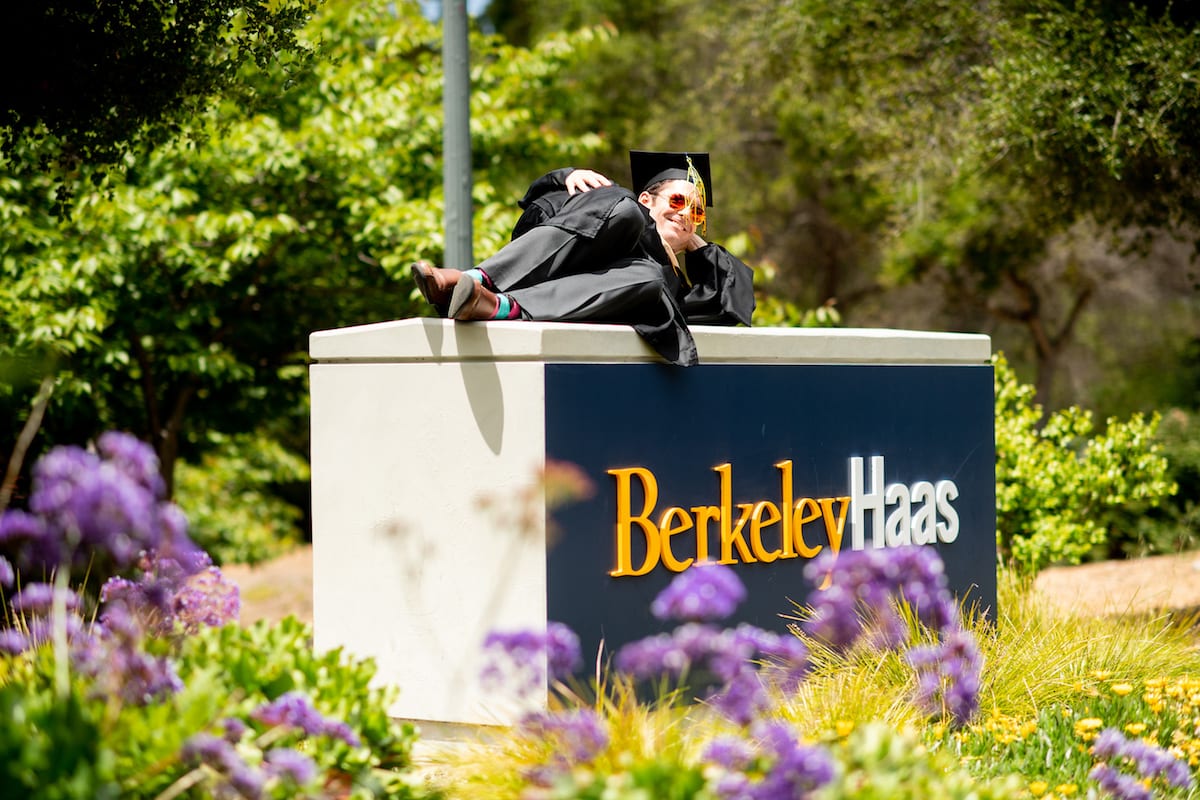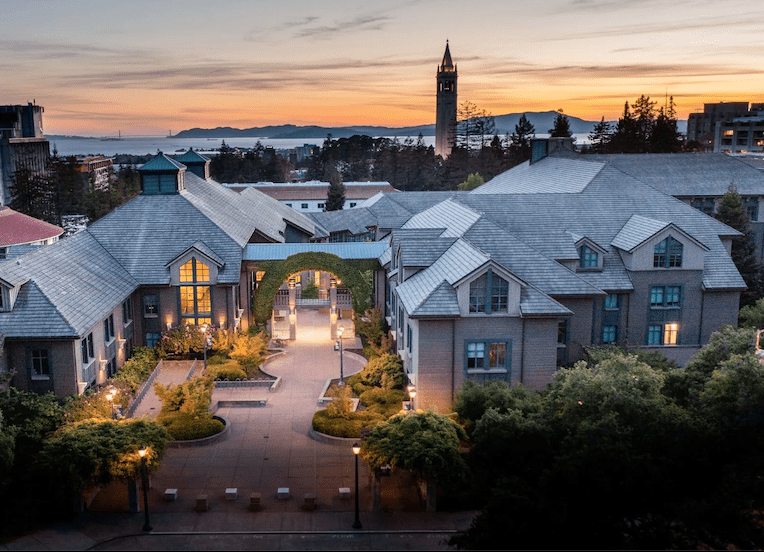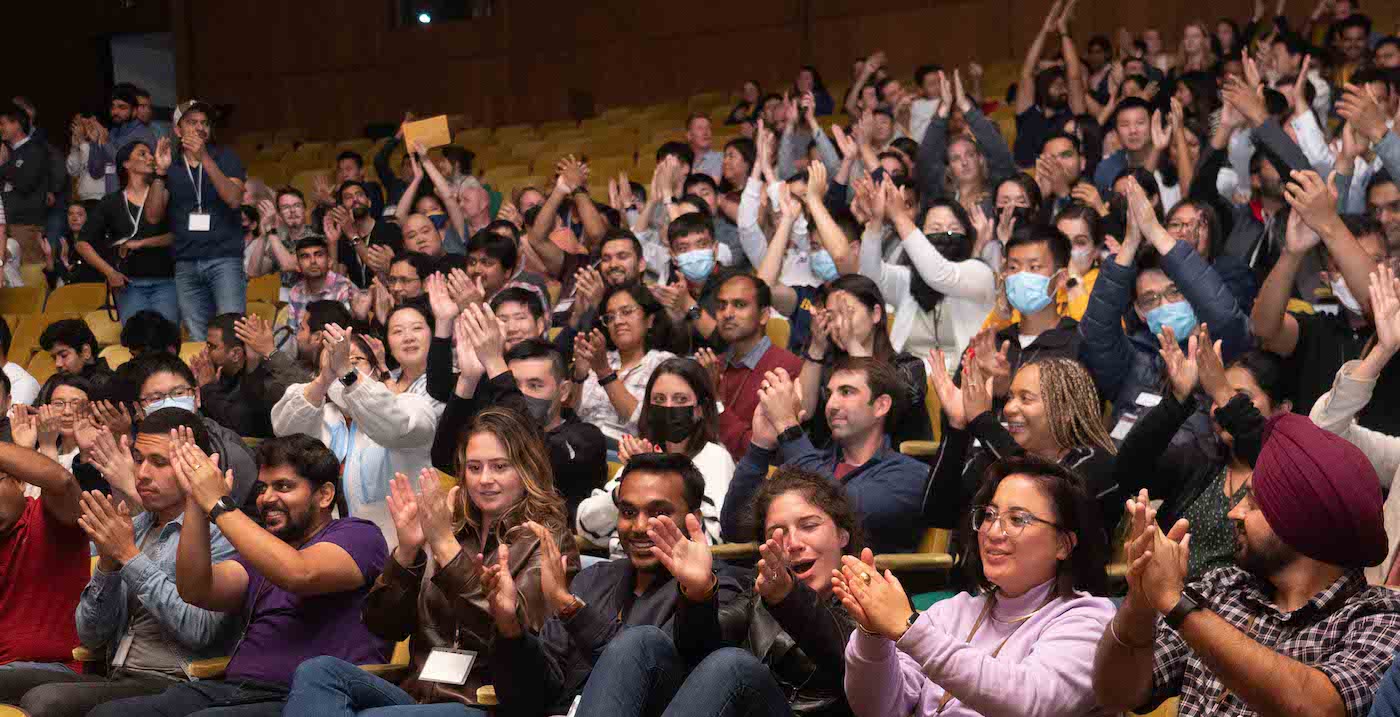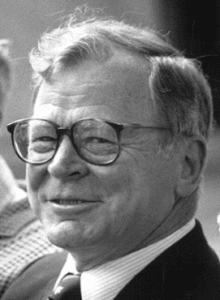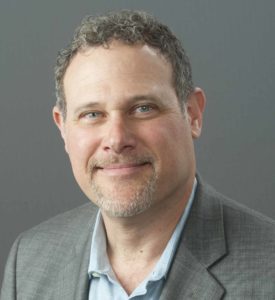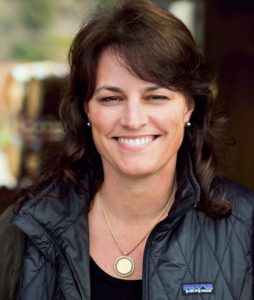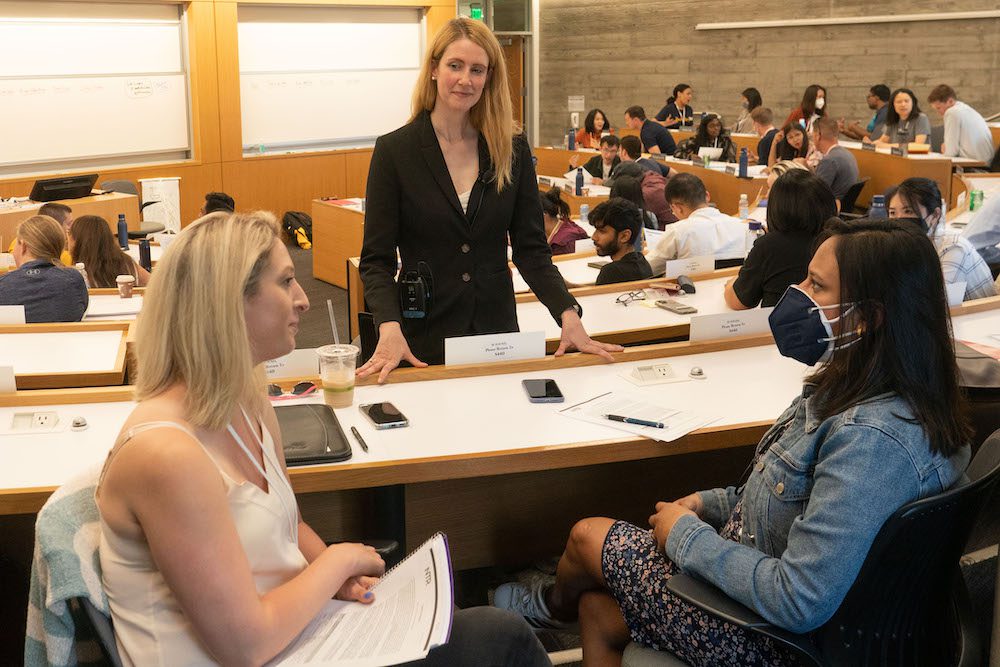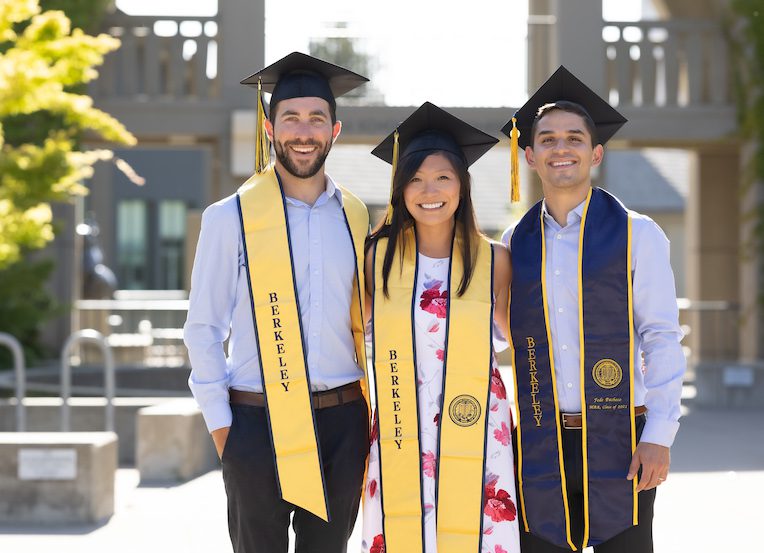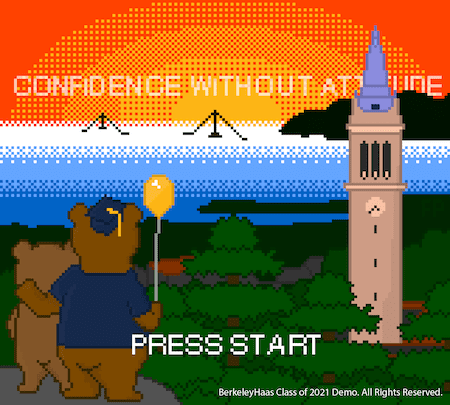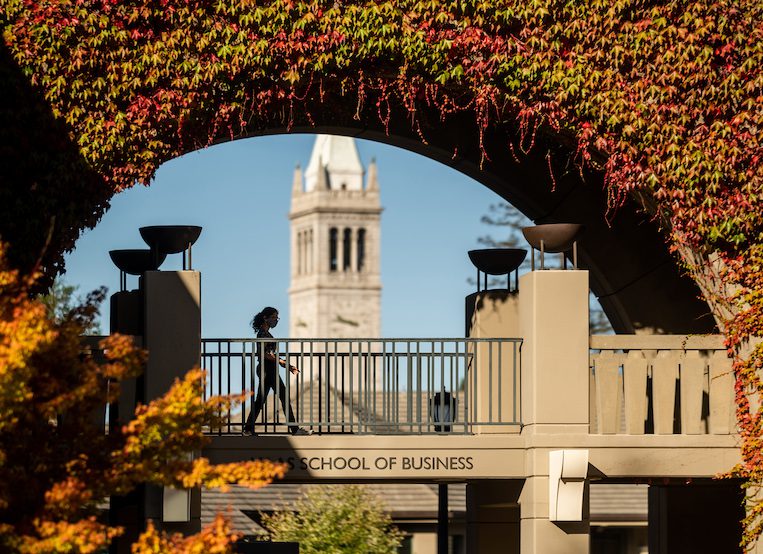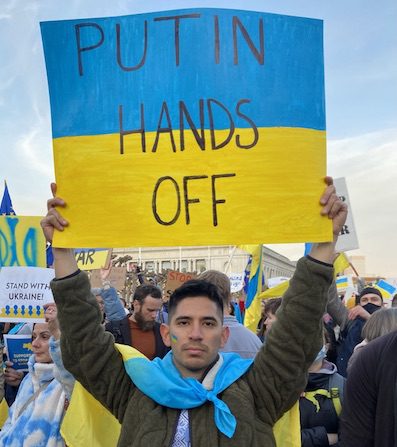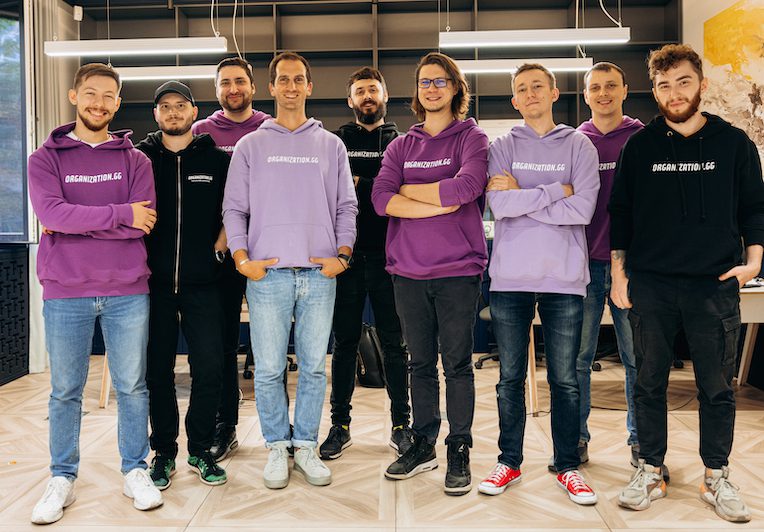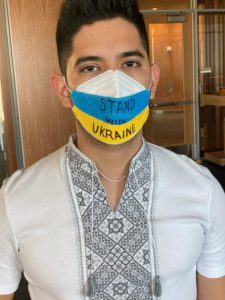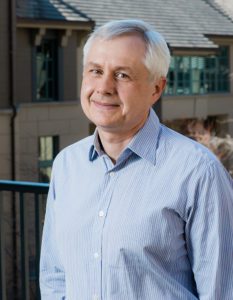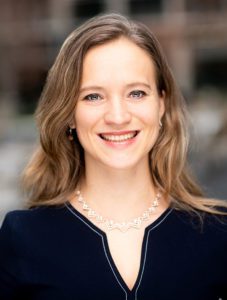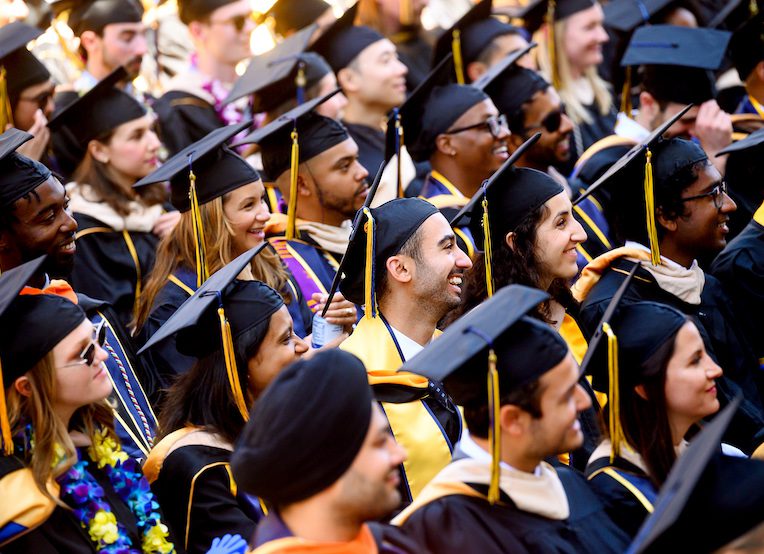
Setting a record, annual base salaries for the Berkeley Haas Full-time MBA Class of 2023 increased to an average of $162,831. That’s about $10,000 more than last year, with nearly 70% of the class nabbing signing bonuses averaging $36,777 as well. Notably, 39% received stock options or grants, adding significantly to total compensation.
“We’re thrilled that starting salaries and compensation packages have continued to grow, reinforcing the strong return on investment on a Berkeley Haas MBA,” said Abby Scott, assistant dean of MBA Career Management & Corporate Partnerships. “These outcomes are a testament to the high caliber of our students. Our alumni and career management team also play an instrumental role in helping them navigate paths to reach their goals.”
View the 2023 employment report.
Of the total class of 294 graduates, roughly 90% received job offers within three months of graduation, and even more secured opportunities within six months of graduation. Similar to previous years, more than half of the students accepted roles in the technology industry and consulting. A few more highlights from the Career Management Group (CMG):
- Technology remained the largest industry employer, with about 30% of the class taking positions in the sector. Amazon was the top tech employer.
- Nearly 28% of the class accepted consulting jobs; the largest number of graduates went to McKinsey (26 hires), followed by Bain (14 hires), this year’s two top employers overall.
- Financial services hiring increased from 13.7% to about 14.5% of graduates; health care and biotech jumped from 5.1% to 7.5%. Energy-industry roles among grads jumped to 6.6% of graduates from 2% last year, reflecting the increase in climate tech.
- About 22% of graduates embarked on “impact careers,” defined as jobs in sustainability, climate tech, healthcare, edtech, and some areas of finance and real estate.
- A growing number of students (4.4% of the class) accepted positions in real estate, typically in development and investment roles.
McKinsey, Bain top employers
This year’s top employers for Haas—companies that hired three or more graduates—included Amazon, Boston Consulting Group, McKinsey & Company, Deloitte, Bain & Company, EY Parthenon, PayPal, Apple, Evercore, Microsoft, TikTok, and Tesla.
Matt Solowan, MBA 23, is now a consultant at Bain & Co., after interning there while at Haas, finding the people at Bain similar to the people at Haas: “very down to earth, very kind, very warm, very supportive.”
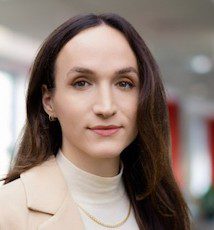
While at Haas, Solowan said they worked closely with Julia Rosof, a career coach in the Career Management Group, to prepare for early recruiting opportunities scheduled during ROMBA, the annual LGBTQ+ MBA conference. “After that, I really leaned on the second-year peer advisors who provided me with on-the-job insights and helped to improve my casing and behavioral interview skill,” Solowan said.
In addition to consulting, the tech sector remained a top area of interest for FTMBA graduates, “so we were particularly pleased to see so many land roles this year, given all the churn in the field,” Scott said.
Highlighting the power of the alumni network, Henry Gordon, MBA 23, landed a position as strategy and planning manager at drone startup Skydio, after chatting with classmate Harrison Zhu, MBA 23. Zhu, a product manager at Skydio, had interned there while at Haas. “I knew he really liked the company and when I was looking for roles this one popped up in my LinkedIn,” Gordon said. “I texted Harrison to ask about it, and three weeks later, I had a job.”
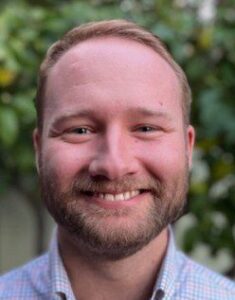
Since joining Skydio, Gordon said he’s helped guide the company’s strategy as it pivoted from its consumer drone business to the enterprise market. “I was attracted to Skydio because of the enormity of the problems that they are trying to solve”—by providing drones to utilities, fire departments, and other industry customers. “About 30% of my job now is familiar, and the other 70% is totally new.”
Grads land in multiple regions
Lecturer Abigail Franklin, managing director of a program for careers in real estate who works with the Fisher Center for Real Estate & Urban Economics, said alumni working in real estate are particularly critical to her students’ success in finding roles. “Our 2023 graduates did so well in many geographic locations with the best compensation that I’ve seen in my 12 years here,” Franklin said. “It’s really a testament to the real estate alumni we have.”
One example, she noted, are the Haas alumni at privately owned real estate firm Hines, which hired two 2023 Haas MBA graduates this year—one in Chicago and another in Seattle, she said.
A number of 2023 graduates held out until the fall for the right opportunity, based on their specific career criteria—and the Career Management Group continues to support graduates until they find the right role, often reconnecting during future job transitions.
Before coming to Haas, Megan Nelson, MBA 23, worked for Uber in Australia. When she started in 2015, she was one of 20 employees in Sydney, a number that swelled to 400 people by the time she left as senior regional operations manager in 2021.
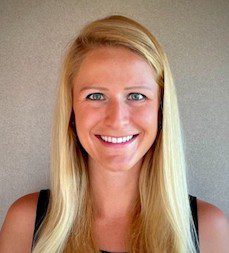
Nelson decided to take a few months off after graduating from Haas before beginning her search for strategy and operations roles last August. With a goal to move back to Australia and work at a startup or scale-up, she jumped to apply for a position as chief of staff at Sydney-based startup JOLT, a company working to support the transition to electric by providing free, fast, and clean EV charging.
Her new role at JOLT aligns with her love for working for a company at an early stage. “I am focused on a bit of everything, including expanding our CEO’s capacity so he can steer the ship. I’m supporting both Australia and our international markets, and helping build the internal operating structures to enable our teams to sprint.”
Classes at Haas provided a professional lens that Nelson said she applies in the workplace.
“Haas built my confidence,” she said. “I realized that my background was really valuable. Hearing the perspectives of my peers in the classroom, the courtyard, and over drinks—the people were the best part of Haas. It’s having those rich experiences and interactions, and being able to share my own…it’s these types of learnings that have helped me the most.”
